President Trump Removed IRS Commissioner Billy Long After Two Months Of Service. What Could This Mean To The Future Of IRS Tax Enforcement?
On June 12, 2025, the Senate confirmed President Donald Trump’s nomination of former U.S. Rep. Billy Long of Missouri to be Internal Revenue Service commissioner, clearing the path for him to begin a term that will end in November 2027; but that service ended on August 8, 2025 when Trump announced Long being removed from that position and that U.S. Treasury Secretary Scott Bessent (whose department oversees IRS) shall be servicing as the acting IRS Commissioner. The removal of Long is reportedly due to his refusal to allow IRS to release some information on taxpayers suspected of being in the United States illegally; however, Trump appointed Long to serve as the new U.S. ambassador to Iceland which Long accepted.
While the waiting for the Senate to confirm Billy Long, President Trump had promoted Gary Shapley as the new acting IRS Commissioner replacing Melanie Krause, who resigned from her role as acting IRS commissioner over a deal to share immigrants’ tax data with Immigration and Customs Enforcement to identify and deport people illegally in the U.S. But just 3 days in this position, President Trump replaced Shapley with Michael Faulkender.
It should be noted that “acting” personnel positions do not require approval by the Senate as such appointments are temporary and the permanent position is to be filled by someone else who is subject to approval by the Senate.
Danny Werfel, previously served as IRS commissioner during the Biden Administration until resigning January 20, 2025. Bessent will be the seventh person to lead the IRS this year.
History Between Commissioner Long And The White House
According to reporting by the Washington Post, the Department of Homeland Security (“DHS”) had sent the IRS a list of 40,000 names on Thursday that it suspects of being in the country illegally. DHS asked the tax service to crosscheck confidential taxpayer data to verify their addresses. The IRS reportedly responded that it was able to verify fewer than 3% of the names on the DHS list, and mostly names that came with an individual taxpayer identification, or ITIN number, provided by DHS.
Administration officials then requested information on the taxpayers the IRS identified, which the service declined to do, citing taxpayer privacy rights.
The White House has identified the IRS as a component of its crackdown on illegal immigration and hopes that the tax agency help locate as many as 7 million people in the US without authorization. In April, homeland security struck a data sharing agreement with the Treasury Department.
But Long appears to have resisted acting on that agreement, saying the IRS would not hand over confidential taxpayer information outside its statutory obligation to the Treasury Department.
Difference In Backgrounds Between The Former And Current Presidential Administrations
Danny Werfel, who previously served as IRS commissioner into the Biden administration until resigning January 20, 2025 held leadership roles at the Office of Management and Budget. He also worked in the private sector as a managing director at Boston Consulting Group. In contrast Billy Long worked many years as a real estate agent and as an auctioneer before spending a dozen years in Congress. In the last two years since leaving Congress, Long worked for at least two firms that marketed the employee retention credit — a pandemic-era benefit designed to support businesses that kept workers despite revenue losses or disruptions caused by COVID-19. The credit while designed to help businesses remain in business despite the impact of COVID-19, also attracted fraud, eventually leading to IRS enforcement and investigative activity that is still going on.
Given the $80 billion in new funding that the IRS started receiving under the Inflation Reduction Act, one of Werfel’s first tasks was to produce the IRS’s strategic operating plan on how it will spend these funds. Commissioner Werfel promised “real world improvements for every taxpayer, every tax professional, and every IRS employee.” But since Werfel is no longer the Commissioner, any new Commissioner will have the power to influence how Americans pay their taxes and how the federal government collects revenue. Trump has promised to end IRS “overstepping” and Republicans have said that they would slash billions of dollars in funding passed under the Inflation Reduction Act that Wefel was relying on to modernize the IRS and enhance tax enforcement.
For taxpayers who have outstanding issues with the IRS or are at risk of being audited or investigated by the IRS, a scaling back of the additional funding and change in posture of the IRS could create new tax relief opportunities.
Importance To Preserve Records
Keep in mind that the IRS has up to three years to select a tax return for audit. For California taxpayers, the Franchise Tax Board has up to four years to select a California State Income Tax Return for audit. In some cases these 3 and 4 year periods are extended to six years. When a taxpayer is selected for audit, the taxpayer has the burden of proof to show that expenses claimed are properly deductible. Having the evidence handy and organized makes meeting this burden of proof much easier.
Essential Records to Have for a Tax Audit
If you are getting ready for a tax audit, one of the most important things to do is gather and organize your tax records and receipts. There’s a good chance that you have a large amount of documents and receipts in your possession. No matter how organized you are, it can be a daunting task to collect the right pieces and make sure that you have them organized and handy for the audit conference.
We have seen many tax audits that hinge on whether or not the taxpayer can provide proper documentation for their previous tax filings. A tax lawyer in Orange County or elsewhere can make sure that the documentation is complete and proper. By submitting this to your tax attorney in advance of the audit, your tax attorney can review your documentation and determine if there are any gaps that need to be addressed before starting the dialogue with the IRS agent.
So what are the most essential tax records to have ahead of your audit? Here are a few must-have items:
- Any W-2 forms from the previous year. This can include documents from full-time and part-time work, large casino and lottery winnings and more.
- Form 1098 records from your bank or lender on mortgage interest paid from the previous year.
- Records of any miscellaneous money you earned and reported to the IRS including work done as an independent contractor or freelancer, interest from savings accounts and stock dividends.
- Written letters from charities confirming your monetary donations from the previous year.
- Receipts for business expenses you claimed.
- Mileage Logs for business use of vehicle.
- Entertainment and Travel Logs for business
Appealing Results Of An IRS Tax Audit
Now if your IRS tax audit is not resolved, the results may be challenged. After the Revenue Agent has concluded the tax examination, the agent will issue a copy of the examination report explaining the agent’s proposed changes along with notice of your appeals rights. Pay attention to the type of letter that is included as it will dictate the appeals process available to you.
The “30-day letter”
The “30-day letter” gives you the right to challenge the proposed adjustment in the IRS Office Of Appeals. To do this, you need to file a Tax Protest within 30 days of the date of the notice. The Appeals Office is the only level of appeal within the IRS and is separate from and independent of the IRS office taking the action you disagree with. Conferences with Appeals Office personnel are held in an informal manner by correspondence, by telephone, or at a personal conference.
The “Notice Of Deficiency”
If the IRS does not adopt your position, it will send a notice proposing a tax adjustment (known as a statutory notice of deficiency). The statutory notice of deficiency gives you the right to challenge the proposed adjustment in the United States Tax Court before paying it. To do this, you need to file a petition within 90 days of the date of the notice (150 days if the notice is addressed to you outside the United States). If you filed your petition on time, the court will eventually schedule your case for trial at the designation place of trial you set forth in your petition. Prior to trial you should have the opportunity to seek a settlement with IRS Area Counsel and in certain cases, such settlement negotiations could be delegated to the IRS Office Of Appeals. If there is still disagreement and the case does go to trial, you will have the opportunity to present your case before a Tax Court judge. The judge after hearing your case and reviewing the record and any post-trial briefs will render a decision in the form of an Opinion. It could take as much as two years after trial before an Opinion issued. If the Opinion is not appealed to a Circuit Court Of Appeals, then the proposed deficiency under the Opinion is final and your account will be sent to IRS Collections.
IRS Area Counsel are experienced trial attorneys working for the IRS whose job is to litigate cases in the U.S. Tax Court and look out for the best interests of the Federal government. So to level the playing field, it would be prudent for a taxpayer to hire qualified tax counsel as soon as possible to seek a mutually acceptable resolution without the need for trial, and if that does not happen, to already have the legal expertise in place to vigorously defend you at trial.
What Should You Do?
You know that at the Law Offices Of Jeffrey B. Kahn, P.C. we are always thinking of ways that our clients can save on taxes. If you are selected for an audit, stand up to the IRS by getting representation. Tax problems are usually a serious matter and must be handled appropriately so it’s important to that you’ve hired the best lawyer for your particular situation. The tax attorneys at the Law Offices Of Jeffrey B. Kahn, P.C. located in Orange County (Irvine), the San Francisco Bay Area (including San Jose and Walnut Creek) and elsewhere in California are highly skilled in handling tax matters and can effectively represent at all levels with the IRS and State Tax Agencies including criminal tax investigations and attempted prosecutions, undisclosed foreign bank accounts and other foreign assets, and unreported foreign income. Also if you are involved in cannabis, check out what a cannabis tax attorney can do for you and if you are involved in crypto-currency, check out what a Bitcoin tax attorney can do for you.


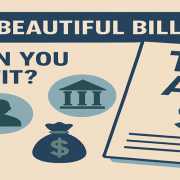
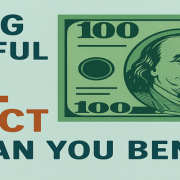
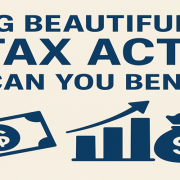
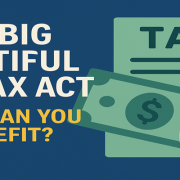
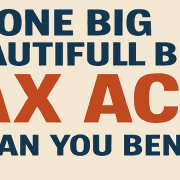
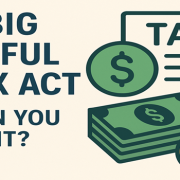
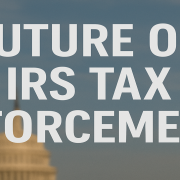
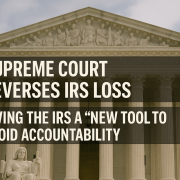
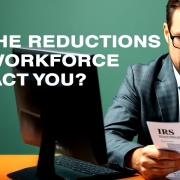

 Follow
Follow Follow
Follow